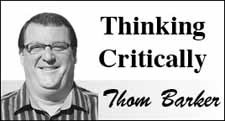October, the time of year for Nobel Prizes and with them the prestige and, as usual, the controversy.
Physics
Very little controversy on what this prize would be awarded for. Confirmation that scientists at CERN had isolated the Higgs boson was the biggest physics news of the year, possibly ever. Theorized nearly half a century ago, it was the only piece of the Standard Model of Physics that had never been observed. It may hold the key to the Big Bang itself.
The Higgs boson is frequently described as the fundamental particle that gives mass to other particles. It's a lot more complicated than that, but suffice it to say, this very small particle is a very big deal so it was pretty much a foregone conclusion that its discovery would top the list for the world's most prestigious physics prize.
But who to give the Nobel to? Although the boson bears Peter C. Higgs's name, there were five other scientists who independently theorized its existence back in 1964 when Higgs wrote his famous paper. Then, there are the folks working away underground in Switzerland who actually finally found the darn thing. And what about the people who built the Large Hadron Collider that made it possible for the discovery to be made? Particle physics is team sport, but there are rules the Nobel Foundation must follow such as the prize can only be awarded to three people at a time, who must be alive. Also, while the Peace Prize has been awarded to institutions, this precedent has not been set for the other prizes.
It's a tough call, but making the tough calls is what the Nobel Foundation must do and it decided the prize should go to Higgs and Francois Englert, the most prominent of the original six theorists. This is bound to be a sore point with numerous people for a long time to come.
Literature
The literature prize this year has not engendered a lot of controversy over the recipient, but it has created a great deal of excitement for Canadians. Alice Munro is the first of our fellow citizens to win the prize and only the 13th woman. Furthermore, she did it with a form, short stories, that most often take a back seat to the novel.
It was a nice surprise, but what surprised me more than anything was how many people I talked to about it asked me, "who is Alice Munro?
Perhaps my memory is foggy, but I was pretty sure Munro was required reading in high school. Even if not, however, I thought she was at least a household name as one of the greatest storytellers in Canadian history.
In any event, I'm sure her publishers must be ecstatic as Canadians who may not have heard of her are rushing to bookstores to find out what the fuss is about and those of us who were already fans are having another look.
Peace
Without question, the Peace Prize is the most controversial of all the Nobels. This year is no exception. In the weeks leading up to the announcement, media coverage (at least in the western media) might have had us believing there was only one person in the running. That would be Malala Yousafzai, the 16-year-old girl who was allegedly shot by members of the Pakistani Taliban for promoting education for girls.
Choosing Malala would have been a no-win situation for the prize committee, which has been frequently criticized for making politically-motivated decisions. Not choosing her has also resulted in criticism. Their committee's choice of the Organization for the Prohibition of Chemical Weapons has already been condemned as "premature" since their work in Syria has only just begun.
At least they didn't choose Vladimir Putin. The Russian president was another nominee whose choice as the Peace Prize recipient would have most certainly raised a lot of eyebrows.




